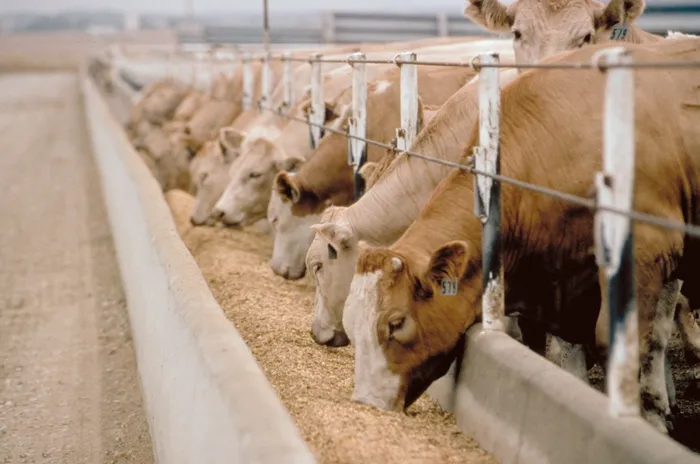Surge in meat prices raises concerns as foot and mouth disease strikes South Africa
INFLATION

Dewald Olivier, CEO of Red Meat Industry Services, noted that the recent increase in red meat prices has been largely influenced by the FMD outbreak, which has disrupted supply chains and prompted concerns over meat availability.
Image: File
South Africa is currently facing a concerning spike in meat prices, primarily attributed to the ongoing outbreak of Foot and Mouth Disease (FMD), according to agricultural associations monitoring the situation closely.
The latest report from Statistics South Africa revealed a troubling rise in consumer food price inflation, which reached an 18-month high of 5.5% in July, up from 4.7% in June.
Dewald Olivier, CEO of Red Meat Industry Services, noted that the recent increase in red meat prices has been largely influenced by the FMD outbreak, which has disrupted supply chains and prompted concerns over meat availability.
As of July, a total of 270 FMD outbreaks had been reported across five provinces and 249 outbreaks of these remained unresolved while 21 had undergone resolution.
“From an industry perspective, the main concern is always whether prices move too far out of line with normal market conditions, as this can affect both consumers and producers,” he said.
However, Olivier remains hopeful that these increases are temporary.
“Slaughtering has resumed in major feedlots, and we expect supplies to normalise. Importantly, aside from China and some of our neighbouring countries, most of South Africa’s export markets have remained open, so trade has largely continued as normal.”
Olivier further highlighted that while countries like China and several of South Africa’s neighbours have implemented restrictions, most export markets remain open, allowing trade to continue as usual.
Francois Rossouw, CEO of the Southern African Agri Initiative (Saai), concurred that while the short-term price hikes are alarming, the endemic nature of FMD poses a more significant long-term risk.
“Outbreaks typically trigger immediate restrictions on animal movement, disruptions in slaughtering, and panic buying, all of which apply upward pressure on prices, as we've seen recently,” he said.
Rossouw stressed that without urgent reform of animal health systems and biosecurity measures—including improvements in vaccine production and traceability—the red meat industry will continue to face crises, leaving producers and consumers in a precarious situation.
Moreover, Rossouw warned that while a temporary relief in prices may arise from shifting excess meat to local markets due to export bans, this should not be mistaken for recovery.
“FMD is no longer a sporadic event - it is becoming endemic in South Africa. The growing frequency and scale of outbreaks point to deep structural weaknesses in our animal health and biosecurity systems,” he said.
“Unless those underlying issues, from vaccine production to traceability enforcement, are urgently addressed, the red meat industry will remain in a state of recurring crisis. This creates significant uncertainty for both producers and consumers. The outlook remains extremely fragile.”
Old Mutual Group chief economist, Johann Els, offered additional context to the July inflation figures, noting that they reflected several public sector price adjustments, including increases in electricity and municipal rates.
Els pointed out that petrol prices, which fluctuated significantly, have also impacted overall inflation.
“A significant base effect from petrol prices also contributes: petrol fell by 100 cents per litre in July 2024 and rose by 55 cents per litre this past July - a swing of R1.55 - pushing fuel inflation from -11.2% in June to -5.6% in July,” he said.
“Food prices, particularly meat, are also adding upward pressure. Meat inflation is expected to climb to 9.1% (up from 6.6% in June and zero in February) due to the ongoing impact of Foot and Mouth Disease.”
Farming association TLU SA general manager, Bennie van Zyl, emphasised the market forces at play, stating that the outbreak has severely impacted farmers, many of whom are unable to bring their cattle and sheep to market.
“The reality now is FMD has an effect on red meat prices. Some of the farmers, because of FMD, and there's a lot of them now, cannot bring their stuff to the market, their meat and their cattle and sheep. This creates a problem now. So, now the whole market forces principle is a little bit disturbed,” he said.
“It's a challenge for the farmer currently. They have to make sure that they stay profitable, and that's a little bit complicated during the outbreak of FMD.”
BUSINESS REPORT